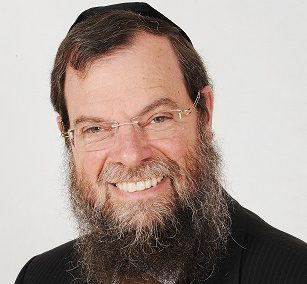
News

Parsha Ki Tetze
Rabbi Yossy Goldman
Do It Yourself destiny
Where do I fit in with destiny?
This week we read Ki tivne bayit chadash… when you build a new house, you must place a guard-rail around your roof so that you will not bring blood upon your house should any man fall from the unenclosed roof.” In the olden days, most roofs were flat and people would use them as entertainment areas.
The Hebrew wording is Ki yipol hanofel. Now, literally, hanofel means “the one who falls” which the commentators say implies that this individual was actually destined to fall off a roof and lose his life.
So the question is, if that person was, in fact, pre-ordained to fall, why is it my fault just because it happened in my house? Why am I responsible for him acting out his destiny? Why should his blood be on my shoulders?
Jewish philosophers would answer this question by saying that although we do definitely believe in destiny and that whatever happens is part of the A-mighty’s vast eternal plan; nonetheless, every individual has an obligation to do his best to prevent tragedy. We must take precautions. Although we believe in miracles we are not permitted to rely on them.
There is a Yiddish proverb that “the man destined to drown will drown even in a glass of water”. But that doesn’t mean that you have to be the one to put his head under the tap.
In short, we believe in the concept of bashert but we mustn’t live by it. Otherwise, why go to work? We say in the Grace After Meals that G-d is the provider for all. So if G-d will support me why must I shlep off to work?
Clearly, this is not the Jewish attitude. That’s why it is a commandment of the Torah to safeguard our health. Likewise, we are not to live dangerously by leaving flat roofs unenclosed, swimming pools unfenced, or our doors unlocked. As they say, “Trust in G-d, but lock your car!”
But is it not an expression of faith to leave it all to G-d? To put our trust implicitly in Him that He will provide? That He will protect us? The answer is an emphatic NO. “G-d helps those who help themselves.” Far from being an irreligious statement, this is quite consistent with Jewish belief.
Elsewhere, the Torah states that “Hashem, your G-d, shall bless you in all that you do”. Meaning that we too must do. We must lay the ground work for Hashem’s blessings to work. It’s like the farmer who knows that the success of his crop depends on G-d granting rain, but the blessing of rain will only help after the farmer has tilled, ploughed and planted.
Gary Player famously said: “The more I practise, the luckier I get.”
If you want to be mazel’dig, don’t depend on mazel alone. If you want to have nachas from your children, don’t rely on the luck of the draw that they will marry the right person. Parents have to plough and plant (and pray very hard) for nachas to happen.
In the words of the Psalmist which we say in Shir Ha’maalot (Psalm 126): “He who sows with tears, will reap in joy.”




